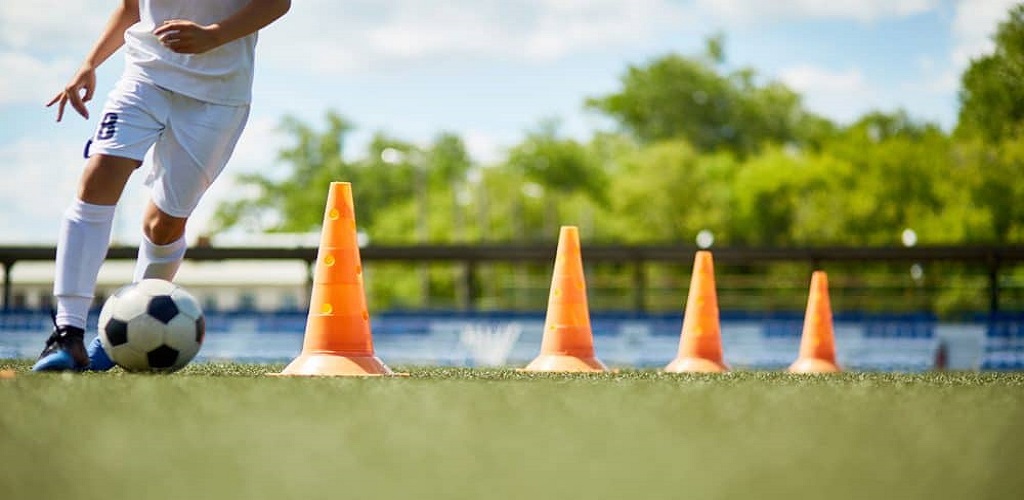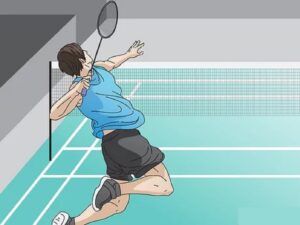Although soccer is mainly a team sport, strategies and relationships with teammates are key. Part of the training may be carried out alone. Here, we explain how to practice soccer alone.
How to practice soccer alone?
Ball technique
The classic image of footballers tapping the ball is more than just aesthetic and is a basic part of soccer training. So, if we want to completely dominate the ball, we must practice many of these touches, moving the ball from the foot, to later pass through the knee, shoulder, and head, without touching the ground.
Explosive racing
The explosive runs in a game can be the key to reaching without opponents of goal and upload both the marker, so it is very convenient to train alone this type of movement. Explosive races require great physical fitness as they often have to be executed after about ninety minutes of play when forces are already failing.
The breaks or dribbles are also very important issues in the game when deciding the outcome of a match. Therefore, it is also necessary that they train and can be done alone. To do this, with the ball, we must start a light race and then make the jogging movement, as if we had another player in front of us, without losing control of the ball at any time.
In the gym
The work in the gym is also very important to improve our physical ability, strength, and state of form in general. Therefore, it is a very relevant part of a soccer player’s training and can be done alone.
Prepare for soccer test
A football test is very important for those preparing because it is a step that can take you far in your sports career and help you achieve your personal goals. If this is your case and you are training for it, you must consider quite a few factors because it is important to train physically as mentally.
Prepare yourself physically
This is one of the three basic pillars of your training. Play soccer a lot, but also do other different types of exercises. Plan what exercises you can do to improve things like endurance, speed, or strength since they are all equally important. To train your physique, you can go to a gym and ask the monitors there for help, or you can do it at home, but keep in mind that you need a routine that touches all aspects, so plan it well.
Prepare tactically
The second important pillar to train for a soccer test is to know, indeed, to play soccer. In this aspect, you must learn to think as a player and as a coach: what is better for me to do now? To what part of the field should I go and return? Which player do I have to mark in his position?
Give yourself 30 minutes a day
Training tactics, possible plays, dribbling, corners, penalties, etc. If someone can help you, much better because you will be able to do more tactics and play a little more as a team so that the training for the tests will be more real. If you are training as a goalkeeper, look for someone who kicks balls at you until you say enough, who throws them each time to a different place in the goal and with different power and speed: you have to see yourself and prove yourself in all situations.
Prepare yourself mentally
The last pillar to understand how to train for a soccer test. You have to open your mind and think that anything can happen on the test day, so you must be ready for any action. Be aware that you may be doing a large part of the test alone, and it may be that the team part is 5 against 5 or 11 against 11. Nothing is this should make you nervous if you have calculated it before at home.
While you are training or even afterward, when you have finished, stop for a while and think about everything they may ask you and how you will react. On the test day, your nerves and anxiety will be completely normal, but you should do a relaxation exercise. To train this aspect, take the time or tell your friends to pressure you: working under light pressure helps improve and already familiarizes you with the stress that you will surely have on the day of the tests. The key, you see, is that your workouts resemble the tests as much as possible.
Take care of your diet and your rest
Follow a healthy diet from the moment you know that you will start preparing for the test and improve it as the day approaches. Eat lots of carbohydrates. Your body will use them to create energy. On the test day, you can eat pasta, rice, potatoes, whole grains, and lean meats.
On the other hand, avoid eating sweets or snacks, as they will decrease your energy. Drinks are also important that day: drink plenty of water and avoid carbonated and sugary drinks.
Be positive
If you train hard and with enthusiasm, you have a good chance that the tests will turn out very well. Even if you see that some days don’t work out for you, don’t quit: we all have better days and worse days but don’t give up. You already know: “If you play you can lose, but if you don’t play you have already lost.” Good luck!
You may also like to read: 10 Best Footballers in The History Of Football Forgotten





